Indigenous Governance Database
NNI and Harvard Project Research
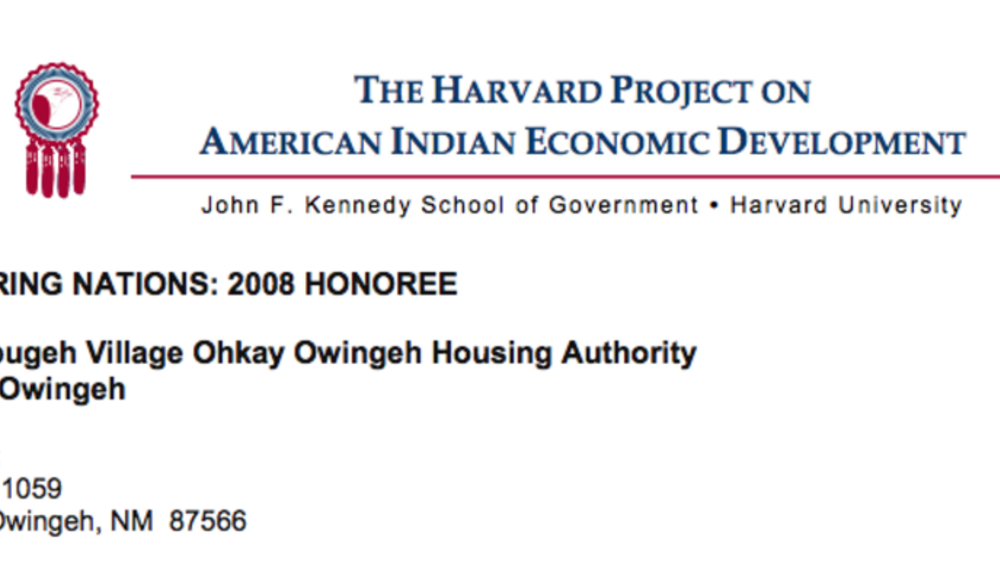
Tsigo bugeh Village (Ohkay Owingeh Pueblo)
Restoring communal living through Pueblo-style housing, the Tsigo bugeh Village offers "traditional living with a modern touch" for Ohkay Owingeh citizens. Designed to honor a sense of community and place, Tsigo bugeh addresses Ohkay Owingeh’s urgent housing demands with 40 units for single and…
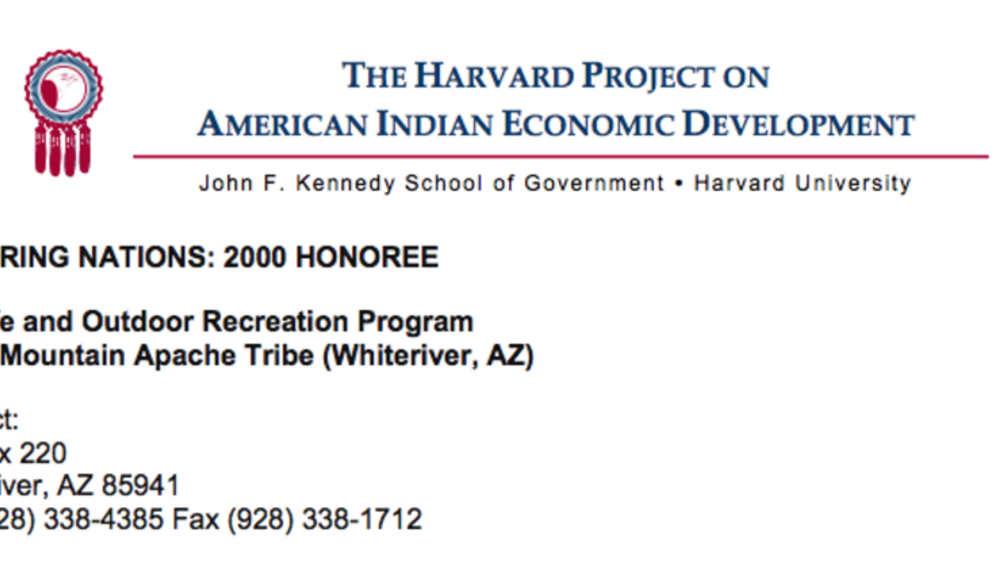
White Mountain Apache Wildlife and Recreation Program
The White Mountain Apache Wildlife and Recreation Program fulfills the dual role of performing all wildlife conservation and management and serving as a self-sustaining business enterprise based on the Tribe’s recreation/tourism industry. The program’s effective wildlife management techniques have…
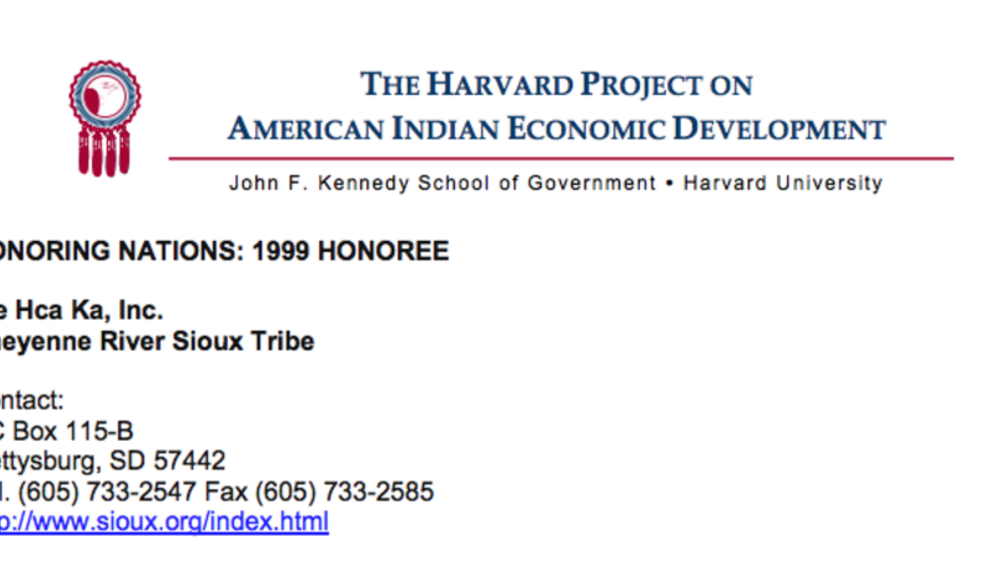
Pte Hca Ka, Inc. (Cheyenne River Sioux Tribe)
This tribally chartered corporation developed a culturally compatible management system for reestablishing buffalo as a focal point for socio-economic development, community cohesion, and self-determination. Pte Hca Ka, Inc. operates a mobile meat processing facility, and is currently seeking…
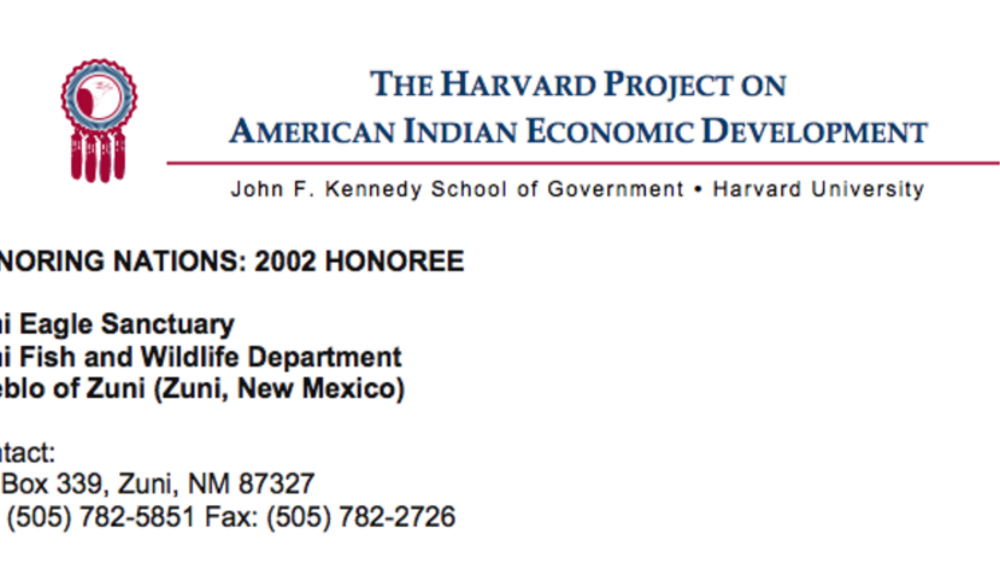
Zuni Eagle Sanctuary
Responding to ceremonial needs for eagle feathers, in 1999, the Pueblo opened the first-ever Native American owned and operated eagle sanctuary. The award-winning facility provides a source of molted eagle feathers for Zuni while at the same time reviving the ancient practice of eagle husbandry.…
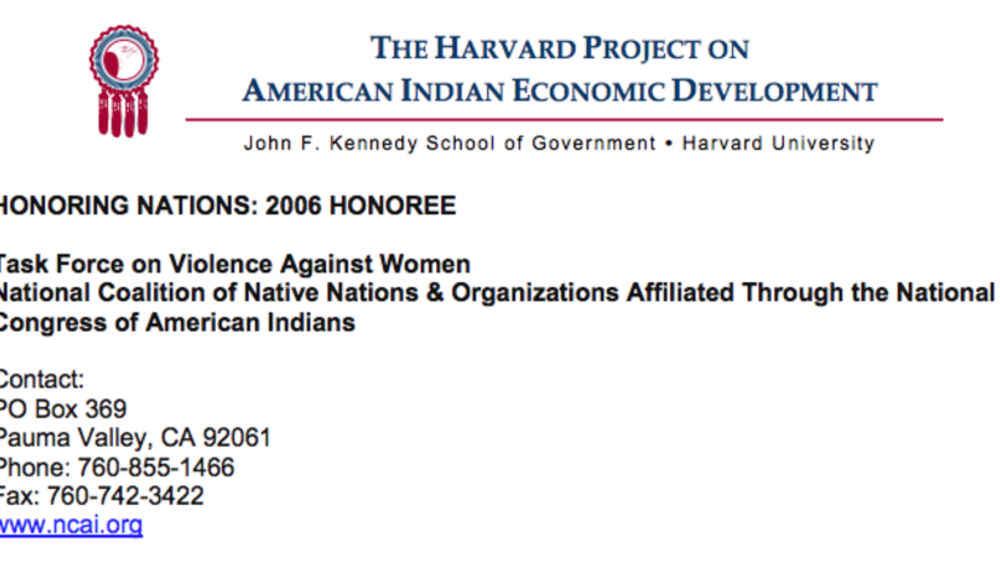
NCAI Task Force on Violence Against Women
Recognizing and acting upon the belief that safety for Native women rests at the heart of sovereignty, leadership from Native nations joined with grassroots coalitions and organizations to create an ongoing national movement educating Congress on the need for enhancing the safety of Native women.…
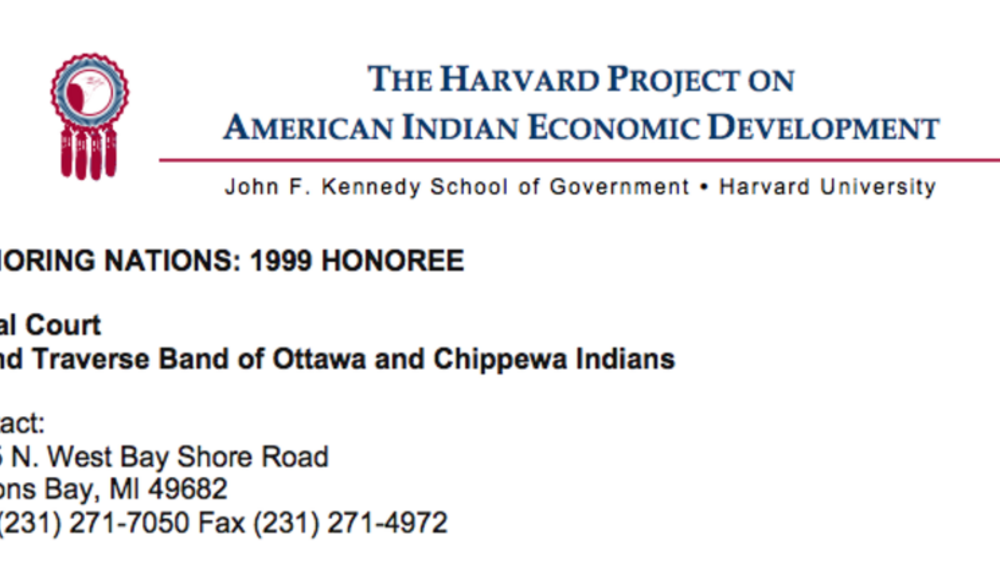
Grand Traverse Band Tribal Court
Constitutionally separated from the political influences of government, the Tribal Court hears more than 500 cases per year, and utilizes "peacemaking" to mediate in cases in which dispute resolution is preferred to an adversarial approach. The Court adjudicates on such issues as child abuse,…
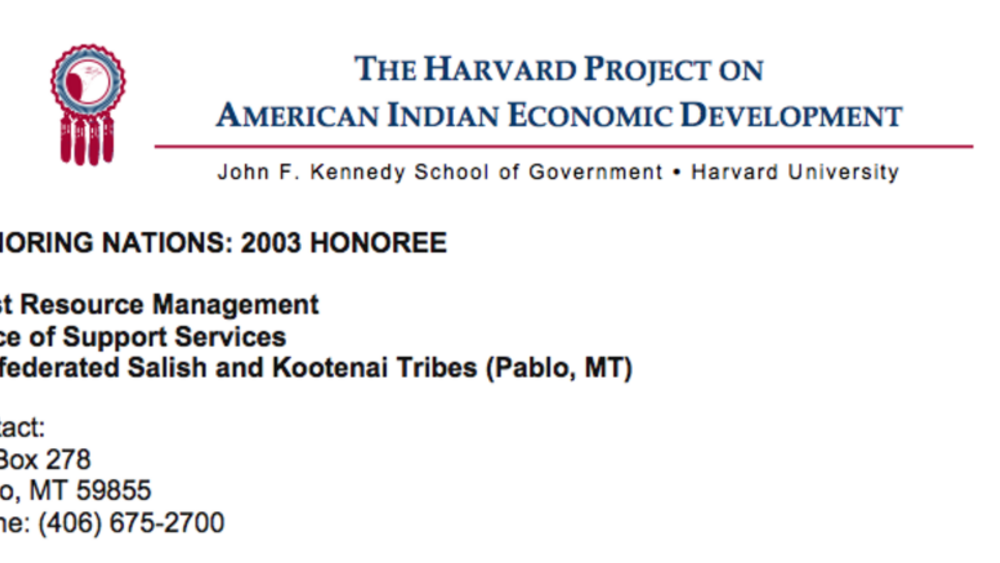
Trust Resource Management (Salish and Kootenai)
For more than three decades, the Confederated Salish and Kootenai Tribes (CSKT) have been building capable governing institutions and taking over management of resources and programs previously managed by outsiders. Recognizing that self-management both allows the tribal government to determine its…
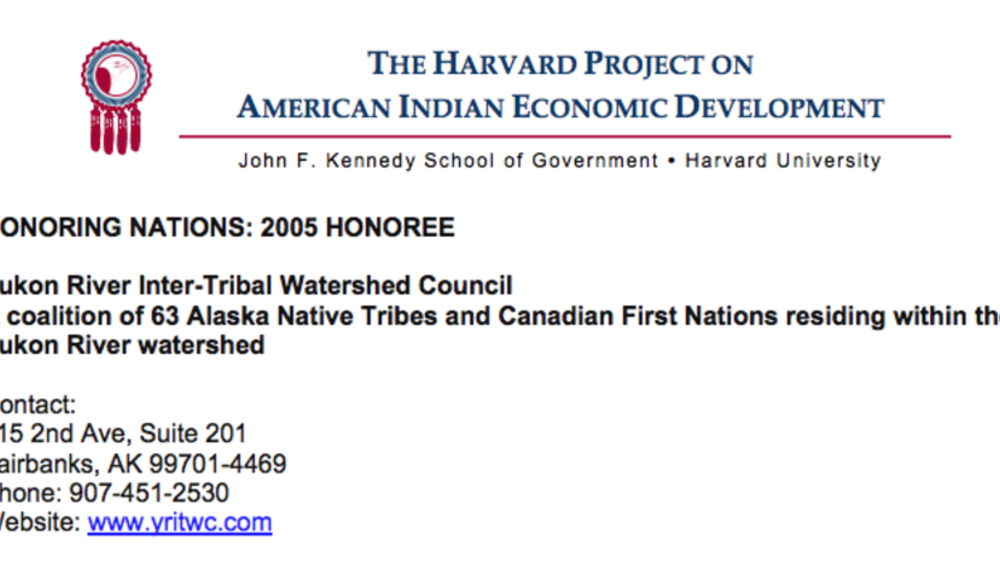
Yukon River Inter-Tribal Watershed Council
The Yukon River runs for 2,300 miles across the northwestern corner of North America. Many generations of Native people have drawn on its waters for food, drink, and other necessities. Recent development and changes in land use have affected the quality of Yukon River water. In 1997, chiefs and…
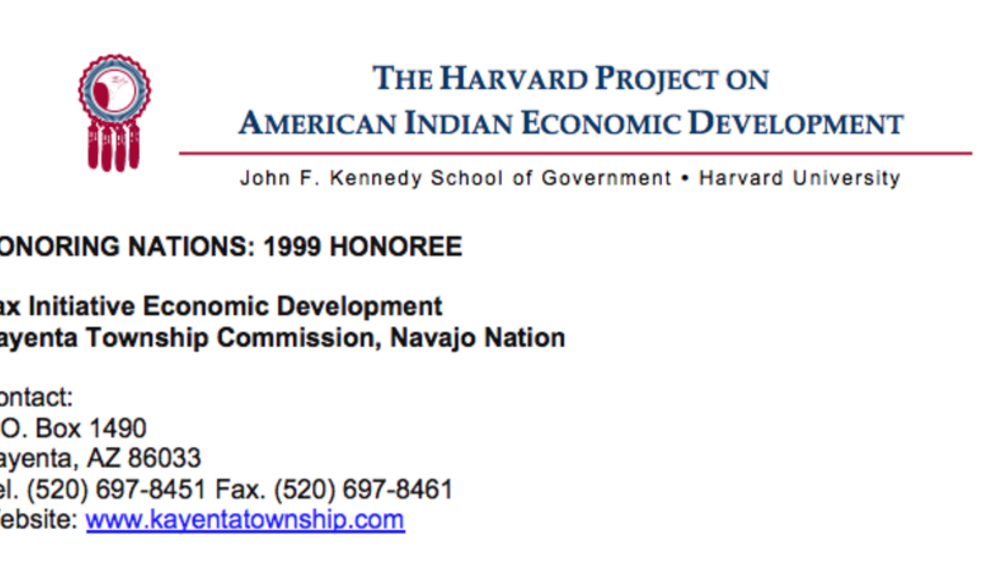
Kayenta Township Tax Initiative for Economic Development
In 1997, Kayenta became the first township on the Navajo Nation to take advantage of new opportunities for local governmental authority by implementing a 2.5% retail tax that brings in hundreds of thousands of dollars annually. This revenue has enabled the Township to build a solid waste transfer…
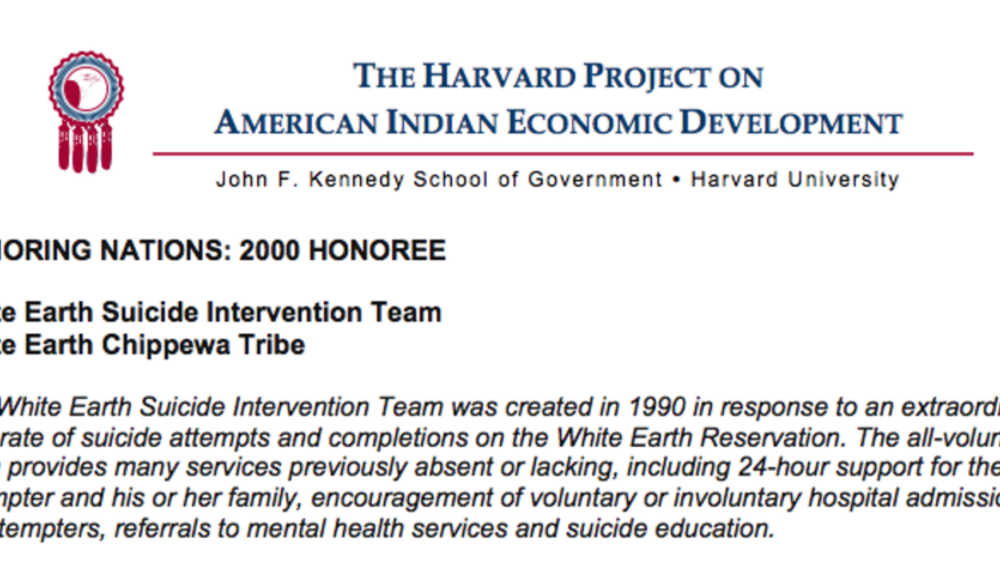
White Earth Suicide Intervention Team
The White Earth Suicide Intervention Team (WESIT) was created in 1990 in response to an extraordinarily high rate of suicide attempts and completions among tribal members living on the White Earth Reservation. With the Tribal Council’s official support, a group of volunteers came together following…
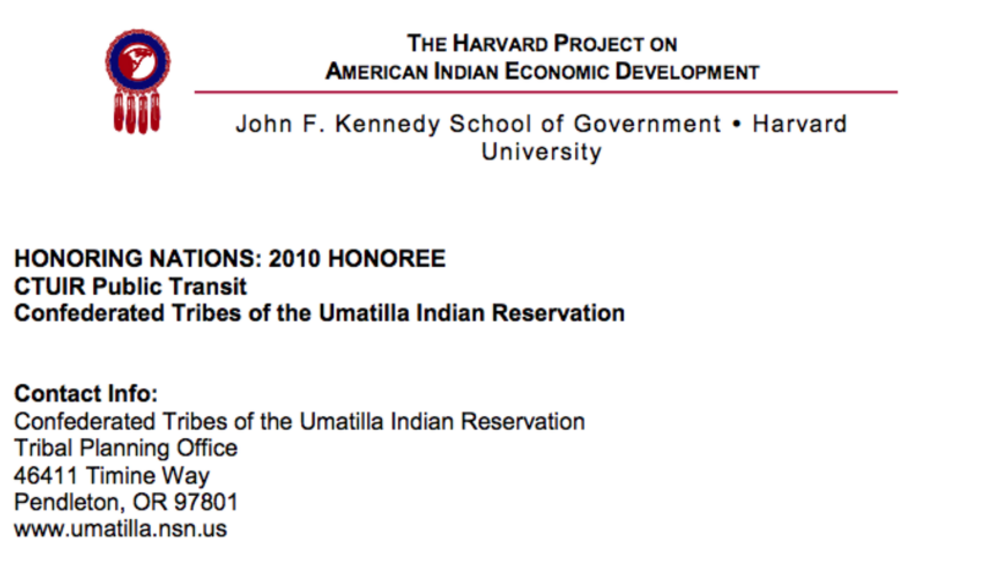
Umatilla Public Transit
In most rural areas of America, if you do not have a car it is difficult to get around. Without transportation, people must depend on friends or family for rides. It can be tough to plan medical appointments, maintain work schedules, shop for necessities, or sign up for classes. The Confederated…
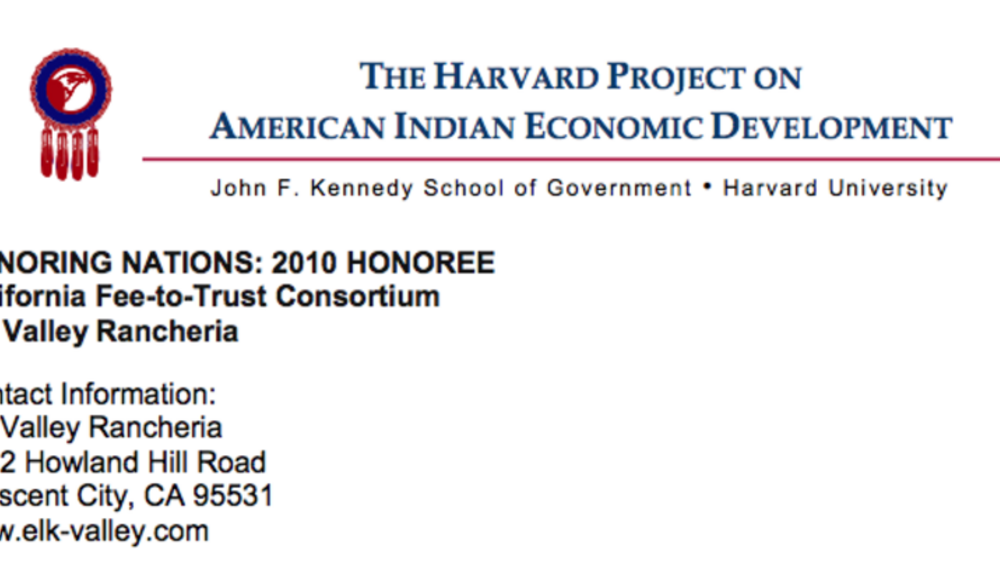
California Fee-to-Trust Consortium
The loss of traditional land is a source of longstanding trauma for Native nations. It has far reaching consequences that began at the time of dispossession and persist today. Many tribes struggle to regain territory in order to support the basic needs of their citizens – housing, economic…
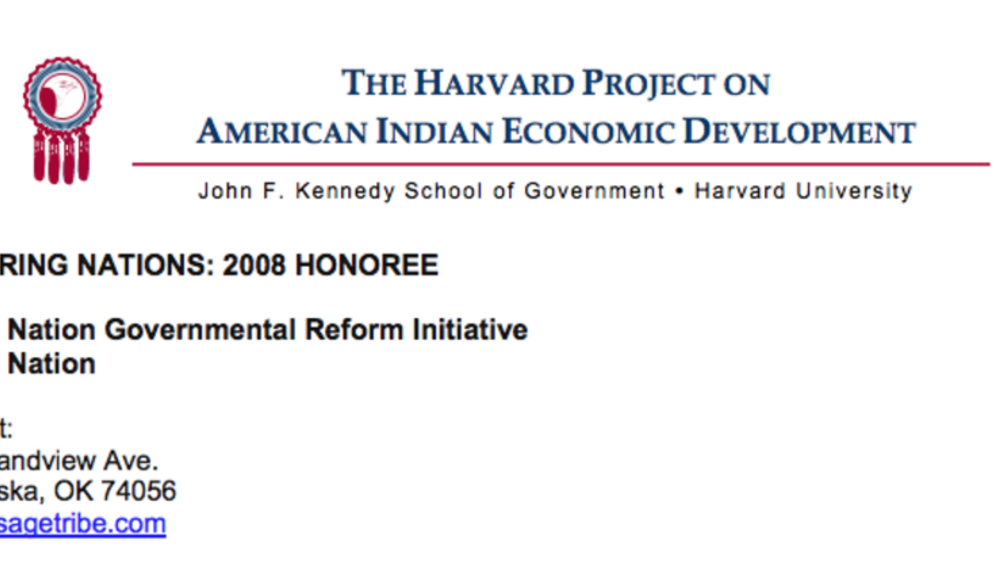
Osage Nation Governmental Reform Initiative
At the turn of the 20th century, the US government abolished the 1881 Osage Nation Constitution and imposed rules for land ownership and citizenship. Many Osage citizens were disenfranchised and the Tribal Council was granted only limited powers, which lead to years of weak government, corruption,…
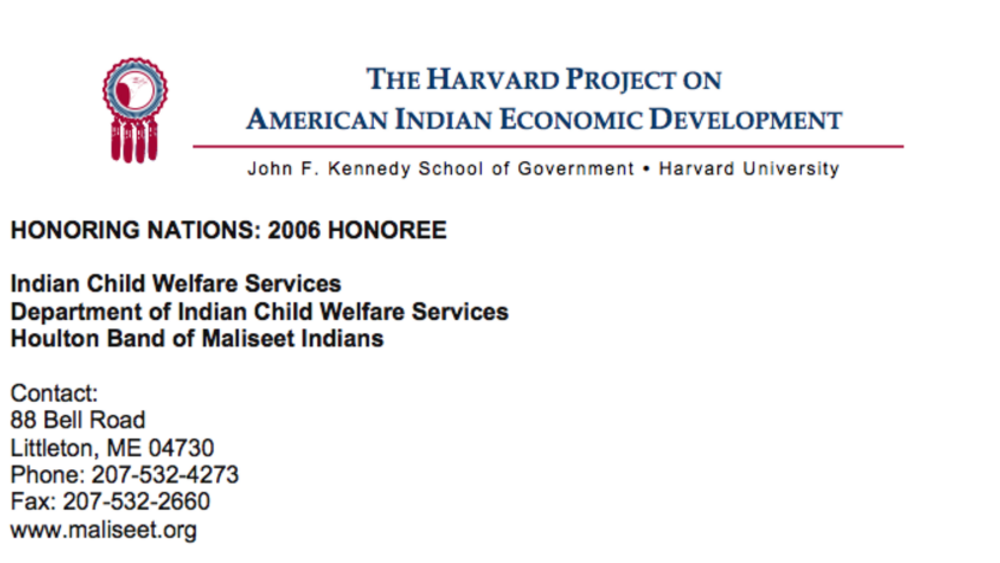
Houlton Band Indian Child Welfare Services
Seeking to establish collaborative working relationships with the state while firmly asserting sovereignty over Maliseet children, a Child Welfare Department was formed by the Houlton Band. The department created a Child Protective Team made up of professionals and volunteers to review and seek…
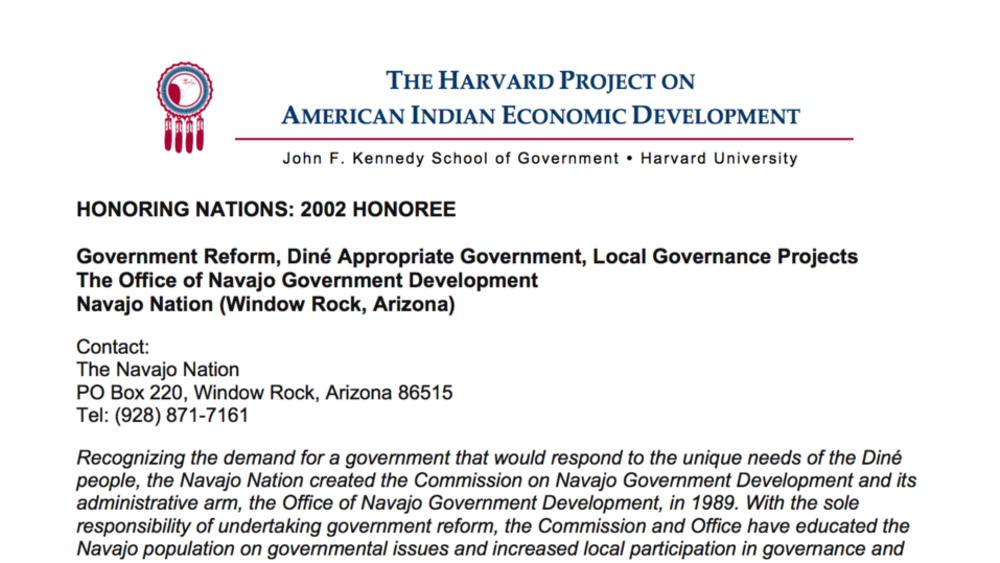
Diné (Navajo) Local Governance Projects
Formed in 1989 by the Navajo Nation Council, the Office of Navajo Government Development works with the Diné people and their elected leaders to conduct government reform, foster the incorporation of Navajo culture and tradition into the Navajo Nation Code, and facilitate the transference of…
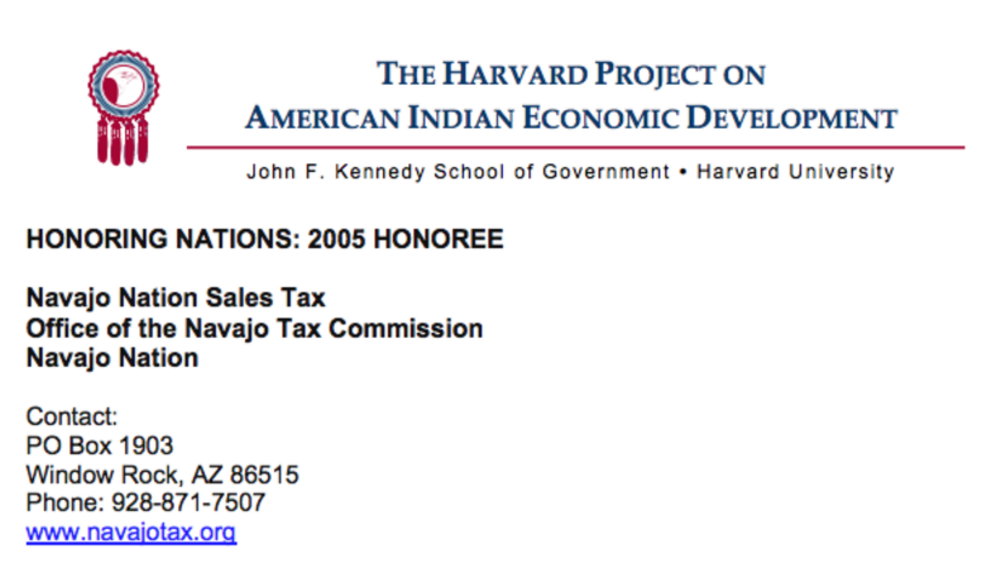
Navajo Nation Sales Tax
Challenges facing sovereign nations include how to support themselves financially, run their governments, and meet the needs of their peoples. In 1974, the Navajo Nation established a Navajo Tax Commission. Following a US Supreme Court decision affirming the Nation’s right to impose taxes, the…
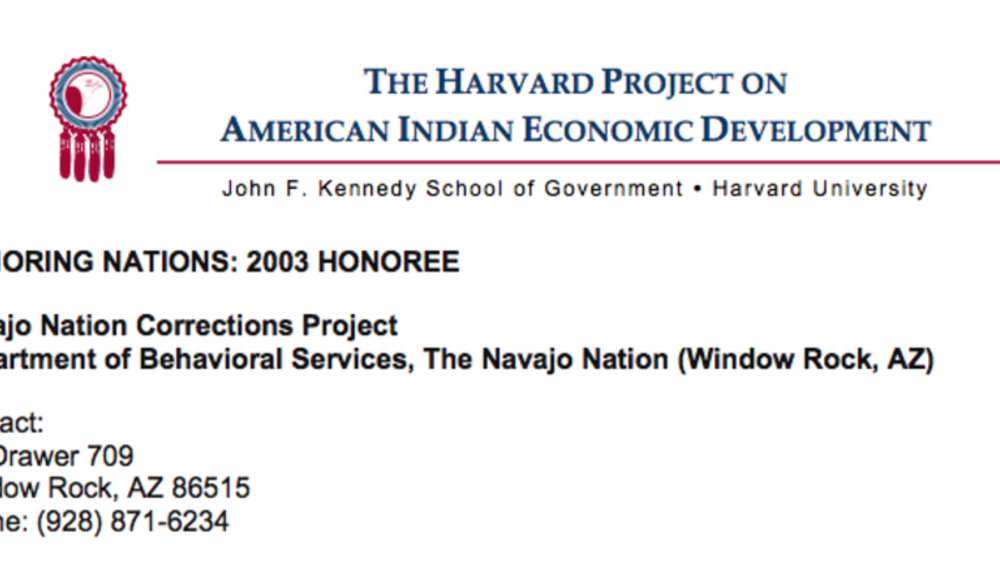
Navajo Nation Corrections Project
Established in 1983, the Corrections Project facilitates, coordinates, and advocates for the use of spiritual ceremonies, cultural activities, and counseling for Navajo and other Indians in correctional facilities. As the liaison between inmates, their families, and Indian and non-Indian government…
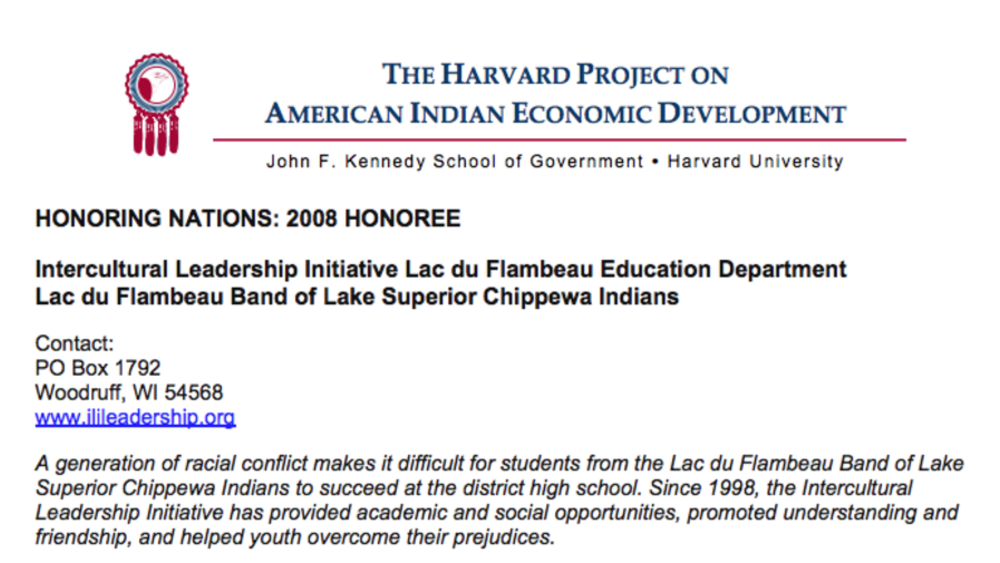
Lac du Flambeau's Intercultural Leadership Initiative
A generation of racial conflict makes it difficult for students from the Lac du Flambeau Band of Lake Superior Chippewa Indians to succeed at the district high school. Since 1998, the Intercultural Leadership Initiative has provided academic and social opportunities, promoted understanding and…
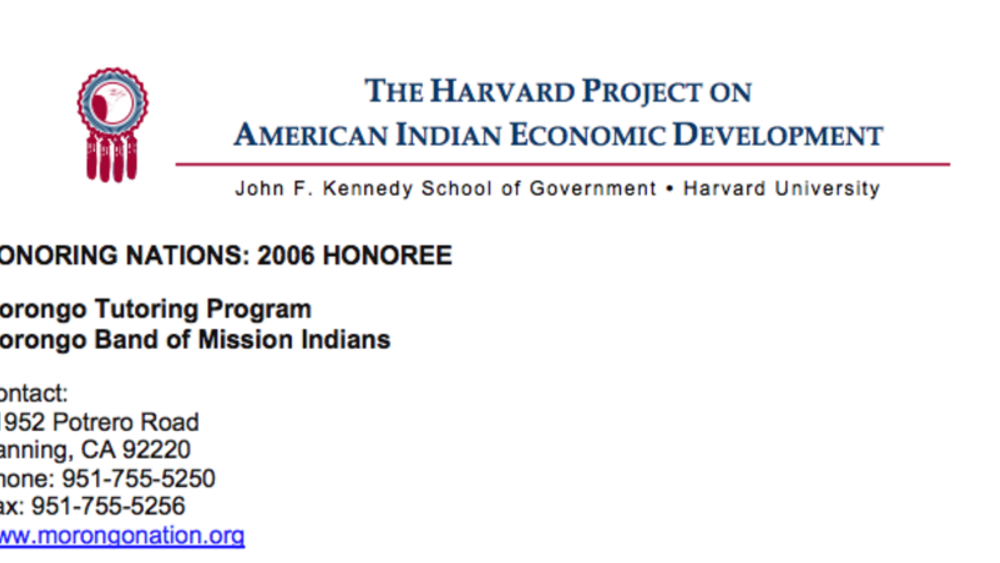
Morongo Tutoring Program
The Morongo Tutoring Program is one of the reasons the high school graduation rate of Morongo students is now at approximately ninety percent, the highest in tribal history. By providing much more than tutoring services, including life skills for early childhood through high school development;…
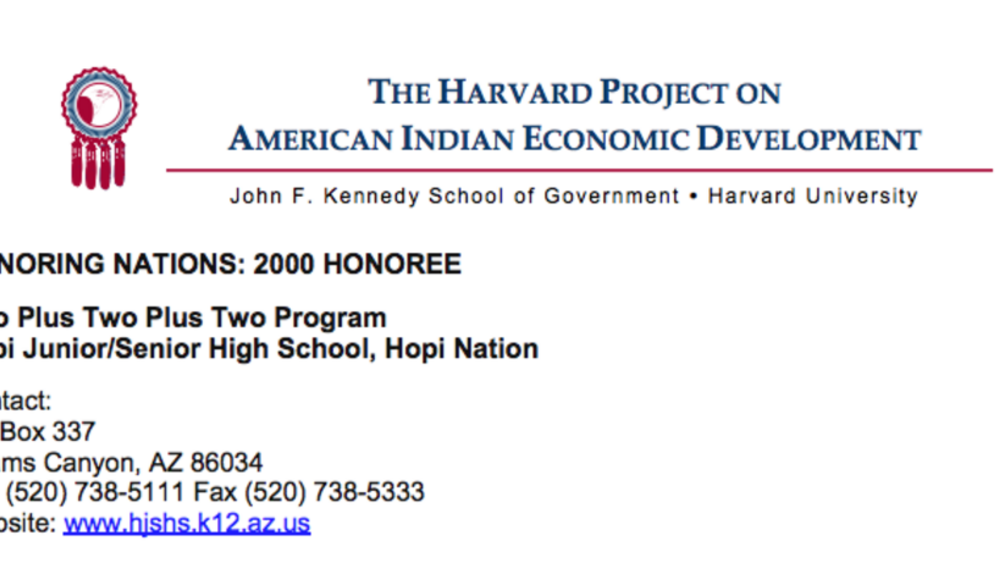
Hopi Jr./Sr. High: Two Plus Two Plus Two
Developed in 1997, the Two Plus Two Plus Two college transition program is a partnership between Hopi Junior/Senior High School, Northland Pioneer College, and Northern Arizona University. The program recruits junior and senior high school students to enroll in classes (including distance learning…
Pagination
- First page
- …
- 3
- 4
- 5
- …
- Last page
